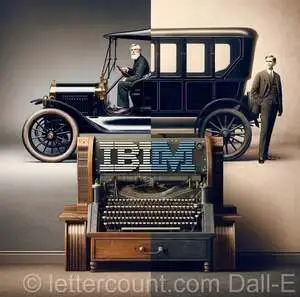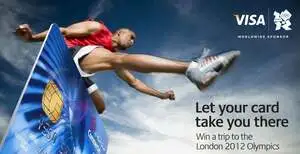We are surrounded by an infinite supply of information and content, making consumer attention span a rare commodity. With only a brief window to make your brand seen and noticed, instant identity is a necessity. So, when it comes to brand names, the shorter, the better. Memorable and easily recognizable names are the first step toward building brand awareness. Think Coke (4 letters), Apple (5 letters), Nike (4 letters), and IBM (3 letters), rather than Uncle Ralph’s Fish Market Superstore and Cannery (48 characters). Then again, that is pretty catchy too... The rule of thumb with brand names is fewer syllables have a larger impact. When a brand becomes emblematic of an industry like Visa for finance, a foundation of customer loyalty and trust is built. To understand more about the power of brevity in branding, read on.
Short brands sell better
The character count in a brand name can significantly impact its memorability, recognizability, and overall success. Short brand names are often easier to remember, pronounce, and associate with specific products or services. As always, there are exceptions to the rule; but if you intend to start a multi-billion dollar business from scratch, definitely start with a short name and use lettercount.com letter counter to assist you. We have gathered some examples of brands that have been successful due, in part, to their short names:
Coca-Cola
Founded in 1886, Coke quickly became a household name, with its abbreviated name playing a crucial role in its branding strategy. Short brand names, such as Coke are memorable. [1] Leave an impact. This simplicity helps brands to stand out in a market by being easy to say and spell, boosting word of mouth promotion. Compact names work well in advertisements, cross barriers and combine effortlessly with logos for strong visual recognition. In todays era concise brand names offer benefits on media platforms, like Twitter and online ads. The success of Coke demonstrates the effectiveness of concise branding in maintaining its status.
Pepsi
Twelve years later in the year 1898 Pepsi emerged with a five letter name, competing with Coke in the global soda market. The brevity of "Pepsi" has played a role in its market presence and brand recognition. The name is rooted in pepsin, an enzyme reflecting its formulation and health oriented intentions. Pepsis knack for encapsulating its essence in a name has been pivotal, to its marketing approach. The term "Pepsi" conveys vitality and refreshment appealing to an audience and facilitating its expansion into product categories and international markets.
Ford

Henry Ford was born with a short, memorable family name that has become iconic in the automotive industry. Without the aid of modern tools like lettercount.com, Ford’s name naturally embodied the brevity that makes brands memorable, and can be fitted within the limited space of the blue oval logo. Besides his revolutionary invention of the moving assembly line, the simplicity of his four-letter surname has significantly contributed to its lasting recognition. Ford’s name exemplifies how a concise brand name can endure and resonate within a competitive market, proving that brevity in branding can be as impactful as innovative technological advancements in ensuring a brand's legacy.
Rolex
Founded back in 1905 the renowned Swiss watchmaker Rolex attributes a portion of its standing success to its five letter name. [2] Representing sophistication and accuracy the brand's title shines brightly in the world of timepieces. The incorporation of the letter "X" adds a touch of memorability and uniqueness enhancing its appeal. This brevity and distinctiveness have cultivated enduring recognition and prestige for the brand. In an industry the concise yet impactful name plays a role, in reinforcing Rolex's reputation showcasing how a concise brand identity can greatly contribute to a company's success and heritage.
IBM
IBM, a technology company, with a history dating back to 1911 holds a position in the tech industry. The name "IBM," which stands for International Business Machines exemplifies the power of concise branding. The simplicity and brevity of this three letter acronym have contributed to its enduring appeal and widespread recognition. By choosing a moniker like "IBM " the company has successfully set itself apart in an evolving market landscape. This instance underscores how a shortened brand name can enhance visibility and influence underscoring the importance of making a lasting impact, in the realms of business and technology.
Visa
Since 1958 Visa has had a four letter name that represents payments and financial services. These four letters are easily recognizable and memorable which is crucial, in the paced world of finance. With four letters Visas name stands out. Fits seamlessly into marketing materials and branding strategies. This concise brand has played a significant role in its widespread trust and acceptance demonstrating how a shorter name can greatly improve brand recall and customer loyalty. Visas success showcases how brevity can effectively convey a companys identity and offerings underscoring the benefits of having a number of letters in branding.

Brief Advertising Slogans
Use lettercount.com to create your next billion-dollar slogan!
Nike: "Just Do It"
Nikes famous "Just Do It" motto, which debuted in 1988 stands out as a source of inspiration, in a few characters. With eight letters it captures the essence of Nikes values of perseverance, initiative and conquering hurdles. This slogan motivates sports performance and strikes a chord with individuals tackling diverse obstacles. Its straightforwardness and wide appeal have solidified its status as one of the slogans worldwide perfectly reflecting Nike's position as a frontrunner, in the athletic realm.
Apple: "Think Different"
Apple's "Think Different" campaign, launched in 1997, consists of 13 letters that have become a symbol of innovation and creativity. This slogan challenged the status quo and invited consumers to embrace originality and non-conformity. It played a crucial role in Apple's resurgence during the late 1990s, positioning the company as a trailblazer in technology and design. The slogan's efficiency lies in its ability to convey a complex idea — thinking outside the box — thanks to careful letter counting during its creation.
McDonald's: "I'm Lovin' It"
McDonald's catchy slogan "I'm Lovin' It " which was launched in 2003 exudes positivity, with its 10 letter phrase that embodies the brand's commitment to providing delightful dining experiences. By highlighting the joy of enjoying McDonalds meals it appeals to a range of customers. The effectiveness of this slogan is underscored by its jingle ensuring it remains ingrained in people's minds. The warm and optimistic tone of the tagline harmonizes seamlessly with McDonalds reputation as a family oriented establishment.
L'Oréal: "Because You're Worth It"
L'Oréals famous motto "Because You're Worth It " introduced in 1973 consists of 23 characters. Serves as a message promoting self worth and empowerment. This slogan transformed the landscape of beauty advertising by emphasizing the importance of self esteem, over product features. It struck a chord with women inspiring them to treat themselves with beauty products as an act of self love and acknowledgment of their value. The ongoing popularity of this slogan underscores its ability to forge a bond with its audience.
Volkswagen: "Think Small"

Volkswagen's famous "Think Small" campaign, from 1959 stands as an example of advertising. By using 10 letters this slogan challenged the car industry's focus on size and strength. It positioned the Beetle as a cost effective and trendy option that resonated with buyers looking for quality and performance. The unconventional strategy of the slogan grabbed peoples interest. Played a role in Volkswagens achievements, in the American market.
Coca-Cola: "Open Happiness"
Coca Colas catchy slogan "Open Happiness " launched in 2009 conveys a message of joy and positivity in 14 characters aiming to connect with customers on an emotional level. This slogan stays true to Coca Cola's tradition of associating its product with moments of happiness and unity encouraging people to savor the pleasure of enjoying a Coca Cola beverage. By emphasizing the brand as a source of refreshment and joy the slogan resonates with consumers. Has become a part of Coca Colas advertising history.
* * *
The success of your business venture often relies on such trivial details as a carefully counted number of letters. Lettercount.com is glad to assist.